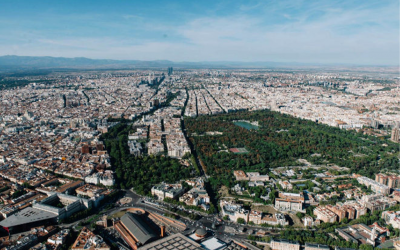The Institute of Engineering of Spain and MWCC make Madrid the World Capital of Engineering

The Institute of Engineering of Spain and MWCC, make Madrid the World Capital of Engineering with the celebration of the international meeting “Engineering the cities of the future”, on March 2 and 3, and World Engineering Day, on March 4. This last event is carried out at the request of the World Federation of Engineering Organizations, a UNESCO member entity and thanks to the sponsorship of companies such as Atlantic Copper, Crea Madrid Nuevo Norte, Ferrovial, Typsa, EMT Madrid, Fundación AON, Tragsa, among others. .
Madrid prevailed over other international cities for the organization of these two events that are so important for the city, which will be attended by more than 300 international leaders from the world of engineering. Both events will take place at the headquarters of the Spanish Institute of Engineering, with the presence of different personalities from the political and business world. The presentations around World Engineering Day will be broadcast live on the internet and it is expected that more than 50 million viewers from all over the world will follow it (figures that were reached in the celebration last year).
For David Garcia Nuñez, president of MWCC “that Madrid becomes the world capital of engineering, with the support of UNESCO, is undoubtedly fulfilling one of the strategic objectives of MWCC. With the celebration of these conferences, we make it possible that the city and the region be an international benchmark in urban solutions, we continue to bet on attracting international investment to the city and of course we continue to weave the Madrid Brand, exposing it internationally.With this action we have involved the main players in the world business, political, institutional and academic, collaborating and taking advantage of the synergies derived from their own activity”.
“Organizing the second edition of the celebration of World Engineering Day is a source of pride for us, as it demonstrates, once again, the great commitment that the IIE has to put engineering at the integral service of society. Without a doubt, it is a unique opportunity to make visible the great Spanish engineers and companies that work, not only in our country, but throughout the world, rubbing shoulders with the most representative figures in the sector”, comments Carlos Rodríguez Ugarte, General Director of the Institute of Engineering of Spain.
In this edition, the theme to be developed and analyzed will revolve around cities. These urban centers concentrate economic and social activity at a global level. It is estimated that 80% of world GDP is generated in cities and that 750 cities represent approximately 60% of world GDP, according to Oxford Economics. 56.2% of the world population lives in urban environments and this figure is expected to increase, according to the United Nations, to 60.4% in 2030 and 70% in 2050, when the world population will be around 9 billion of people.
The rapid growth of cities and their population poses numerous challenges related to essential aspects of urban life: services and infrastructure, transportation systems, access to housing, quality and safety of urban settlements, etc. This scenario represents a real challenge when it comes to meeting the Sustainable Development Goals, fighting climate change and ensuring the circular economy. It is expected that in the next three decades 1.2 million km² of new urban area will be built.
Large cities also have a large environmental impact. They consume approximately 75% of natural resources, such as water, and around 70% of the energy globally. In addition, cities emit about 70% of greenhouse gas emissions and generate 50% of global waste. Therefore, it is essential that the cities of the future are designed in accordance with the Sustainable Development Goals to mitigate their impact on Climate Change.
Urban emissions have numerous impacts, but the one that occurs in the health of its inhabitants stands out especially. According to the WHO, 91% of people living in cities do not breathe clean air. Cities clearly suffer the impacts of climate change and are more vulnerable to it. It is estimated that some 500 million inhabitants live in coastal areas, with great exposure to sea level rise, and around 90% of urban expansion in developing countries will take place in these risk areas.
The trend is for the most urbanized areas to reduce their rate of urban growth, although there are less urbanized areas in Africa, Asia and Latin America that are growing exponentially, where megacities with more than 10 million inhabitants, and 16 in the entire world, proliferate significantly. world.
The actors involved, and especially the engineers, debate, analyze and propose preventive and corrective mechanisms that make cities an ideal place to live.




